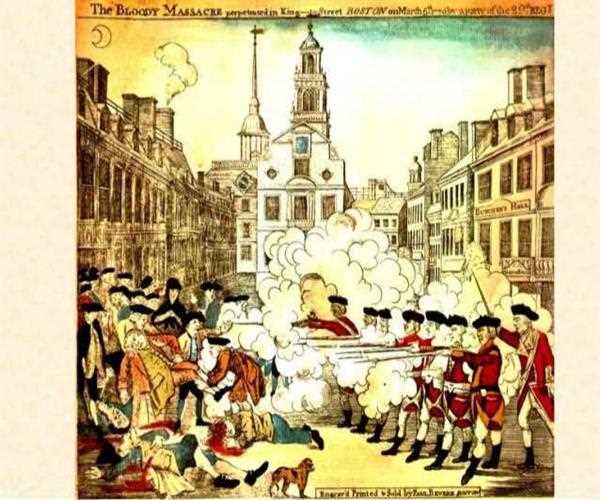The Boston Massacre would one say one is of the most renowned occasions in American history, however why? In this exercise, we'll take a gander at the purposeful publicity encompassing the occasion and perceive how it affected American national memory.

Purposeful publicity in the American Revolution
'Try not to think all that you read' - this wise counsel has been habitually passed around society, however have we at any point halted to really clarify it? What's the issue with confiding in what we read? The issue is that not all printed things are valid, regardless of whether they claim to be. Frequently, literary and visual records are made with a particular plan. At times, this motivation helps through somewhat more unmistakably than others. We call data that is intended to energize the boundless advancement of a philosophy or cause publicity. Purposeful publicity is frequently deceptive, extending or reinterpreting reality to make a particular response. It is utilized particularly as often as possible in wartime as an approach to make prominent help. Purposeful publicity has been a piece of each American war, including the first and the occasions paving the way to it.
The Boston Massacre
In 1767, the British government was paying off debtors. The legislature had quite recently paid for a noteworthy frontier battle called the French and Indian War and was expanding its magnificent control of the American settlements, which had gone un-controlled for a really long time. To pay for this, they approved another arrangement of importation imposes on the American provinces, called the Townshend Duties. Starting here on, pioneers would need to pay an exceptional expense on British items imported into the provinces. The American pioneers were irate about this. How could the administration charge them without giving them appropriate portrayal in Parliament? To express their discontent, Americans boycotted British items, beginning what they called the Non-Importation Movement.
The radical Bostonians and British troops began to conflict. At that point, multi day, these showdowns turned deadly. On March 5 of 1770, a horde of boisterous Bostonians began what was pretty much an uproar, hollering and scoffing at an army of troops. In the long run, they began tossing rocks and snowballs at the British fighters, who reacted by terminating again into the group. At last, five settlers were murdered. The Bostonians promptly started calling the occasion the Boston Massacre.
Boston Massacre Propaganda
In a period when pioneers were beginning to express more prominent discontent towards Britain, the occasion turned out to be quickly politicized. Indeed, even the name proposes this. The pilgrims didn't call the occasion the 'Boston Riot' or 'Boston Conflict.' They called it a slaughter.
We can see the distinctions in how this minute was translated through daily papers. In April 1770, a British daily paper called the London Chronicle gave an account of the occasion.This gathering was likewise assaulted and offended by the crowd, and one of them, accepting a blow, let go his piece.
"Cheers"